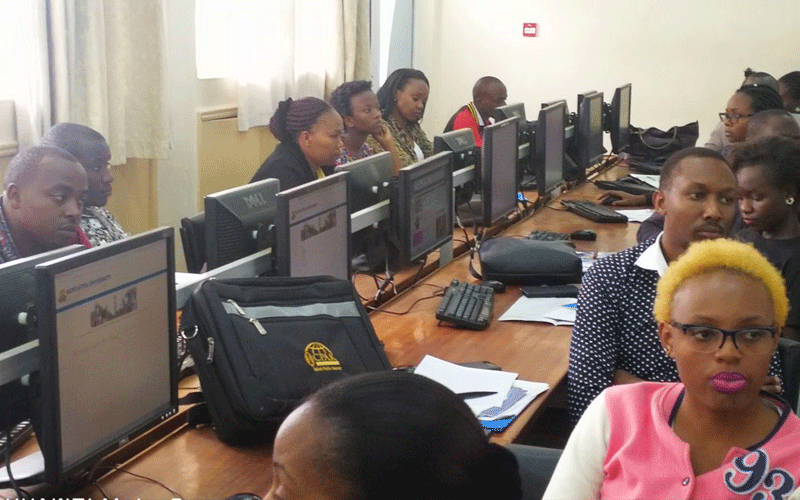Consortium seeks to boost digital learning in Kenyan universities

The disruptive nature of the Covid-19 pandemic is a threat to affordable, accessible and quality higher education, three factors that are vital for Kenya to achieve sustainable development.
It is against this backdrop that a survey was conducted in June 2021 on digital learning to identify issues that could impede this trajectory.
The survey conducted in eleven local universities revealed that most institutions have low capacities to hold virtual laboratory sessions and examinations, inadequate internet bandwidth in remote areas, and lack of gadgets by staff and students thus necessitating urgent solutions.
This is so, because digitisation of teaching and learning relies heavily on the existence of Information, Communication and Technology (ICT) infrastructure.
In response to this, a consortium of eleven universities in Kenya, including Jomo Kenyatta University of Agriculture and Technology (JKUAT), has drafted a joint proposal on a pipeline project on how universities can be supported to mitigate the challenges of Covid-19, especially in areas of digital learning ICT infrastructure within the next five years.
The proposal was presented by Prof Elijah Omwenga, Deputy Vice Chancellor Academic Affairs, University of Kabianga during the Education for Sustainable Development in Africa (ESDA) stakeholder’s webinar.
The webinar forum featured various panel discussion sessions by Vice Chancellors from respective universities.
ESDA initiative
Addressing the over 200 webinar participants, the Principal Secretary at the National Treasury, Dr Julius Muia, said, “Kenya lags behind partly due to underfunding and low focus on Mathematics and Science,” adding that there was need to create synergy in response to Covid-19 and for collaborative research among institutions of higher learning, which would be possible through the ESDA initiative.
The Principal Secretary’s remarks were echoed by Division Manager, Education, Human Capital and Employment African Development Bank Group (AfDB) Chalwe Doroba who noted that there was need to supplement the 0.8 per cent funding allocated to higher education so as to champion the fourth industrial revolution, which has ICT at its core. She stated that ADB is to develop programmes to strengthen learning in Technical and Vocational Education and Training institutions (TVETs) as well.
The proposal aims to develop adequate ICT infrastructure and provide training equipment for staff and students, as well as enhance student experience, especially through virtual simulated labs, which Prof John Njenga, Vice Chancellor, Zetech University says, are critical in allowing for practical skills in courses, such as hospitality and engineering.
The JKUAT task force working on the Sh7 billion-proposal comprises of Prof Stephen Kimani Dean School of Computing and Information Science, Prof Rebecca Waihenya Director School of Open and Distance Learning, Prof Urbanus Mutwiwa and Dr Cherono Kipchumba.
The Kenya Education Network (KENET) Executive Director Meoli Kashorda said laptop ownership in the university community must be prioritised and underscored the need to retain high talent ICT resource persons in the institutions.












